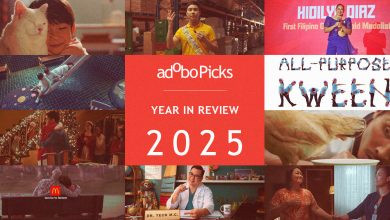MANILA, PHILIPPINES — With over 60 years under its belt and as one of the world’s biggest financial services corporations, Visa has achieved a level of brand recognition only a few businesses can claim to have. However, despite its long-established status as a global leader in the industry, Visa is not done evolving.
As the landscape of financial services and transactions changes, so do the needs and priorities of consumers. This is especially true as the world continues to accelerate towards a cashless society. Visa sees that and not only continues to anticipate consumer needs in accordance with the growing sphere of digital commerce, but it also continues to innovate ways in which it can ensure that the brand transformation that comes with this evolution paves way for financial inclusivity.
In an exclusive interview, adobo Magazine sat down with Jeff Navarro, Visa’s country manager for the Philippines and Guam, as he unpacked the insights and strategies behind this brand transformation that puts financial inclusivity first.
“At the heart of the Visa brand is our purpose to uplift everyone, everywhere, by being the best way to pay and be paid. Visa’s goal is to provide access to the safe, secure, and trusted engine of commerce to drive economic prosperity for individuals, communities, and businesses,” Jeff explained, “Hence inclusivity is a given as one of the foundations in what we do.”
Jeff emphasized the huge scale of Visa’s business — one that spans 3.4 billion account holders, 80 million merchants, and 15,500 financial institutions and governments in more than 200 countries and territories — and how those numbers include underserved people and communities. “We support facilitating a wider access for everyone, everywhere, including those who have been traditionally underserved.”
Visa’s brand evolution started in the US in July 2021. Since then, it has been steadily rolled out across the Asia Pacific, including the Philippines. And it’s no debate that the Philippines is definitely ready for this digital transformation.
Through Visa’s recent Consumer Payment Attitudes Study, the brand found that 7 out of 10 consumers expect the Philippines to be a cashless society within the next 7 to 10 years. Furthermore, data shows that more than 80% of consumers in the Philippines have attempted to go cashless and that cards and mobile wallets saw usage increase. Many consumers have also turned to online shopping and the majority of consumers have the mobile app of their bank installed on their phones.
Speaking to Filipinos’ ability and willingness to adapt to the new, more accessible digital economy, the study also found that there is even growing confidence to get by without cash for even longer periods of time among those who have never tried to go cashless.
“[These] are a few of the valuable insights that lend to a better understanding of consumers’ needs in the Philippines,” Jeff said.
“While digital and contactless payments are becoming more the norm for many people, cash is still the most used way to pay,” he added. “That’s something we’re working hard with all stakeholders to change, in various forms and methods, towards our shared cashless society vision.”
Visa has the initiatives in place to back up its promise to continue fostering financial inclusion, especially in terms of ensuring that the platforms they have in place are not only safe and secure, but accessible and convenient to consumers everywhere.
A significant part of these initiatives in the Philippines is providing financial and digital literacy. When equipped with the right education, people don’t just learn the basics of how to use each platform. Rather, financial and digital literacy informs them of the risks and benefits of digital transactions, and gives them the knowledge they need to make the most out of the new world of services that have opened up to them.
“Financial and digital literacy as key foundations must walk hand in hand before we can hope to see widespread inclusion,” said Jeff.
Visa has been supporting and fostering the increase of financial literacy through innovative ways in the past few years by collaborating with key partners. This includes educational “Lukot-Lukot Bilog-Bilog” live plays developed by Tanghalang Pilipino that were then turned into episodes available online in 2021. Another example is financial education e-modules that Teach for the Philippines piloted in select schools.
In addition to educational programs, Visa continues to invest in technology to ensure that its network is able to offer a differentiated set of products, services, and benefits that give consumers more opportunities and methods through which they can participate in this digital economy. “Visa’s network helps facilitate person-to-person payments that can send and receive money between billions of cards and accounts worldwide, enable a gig-worker with the flexibility to get paid in near real-time, and large corporate payments to be made more effortlessly across borders,” Jeff enumerated as examples of the different of accessibility and convenience Visa’s evolution has paved way for.
At the heart of Visa’s transformation is the goal to break down barriers that hinder people’s access to the future that digital commerce is heading towards. Visa has shown again and again through its services and purpose-led initiatives that its ethos — and every way it has evolved — is grounded in bettering the lives of people everywhere, and it’s clear that it is committed to continuing to do so.
“The foundation of it is that after decades servicing the global payments ecosystem as the leading payment network, we started to re-look at our underlying purpose and how we can bring that to life,” Jeff said. “Not just in the payment sector, but in a bigger overarching way that we touch the lives of people everywhere.”












